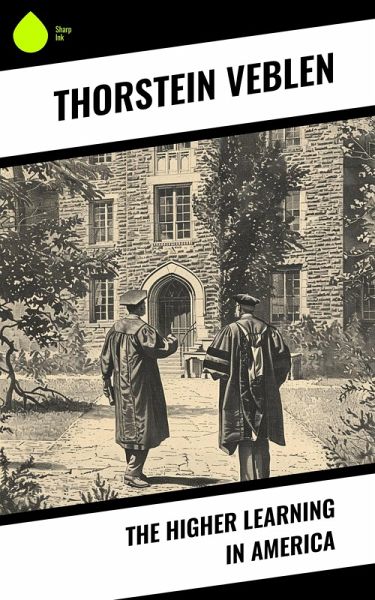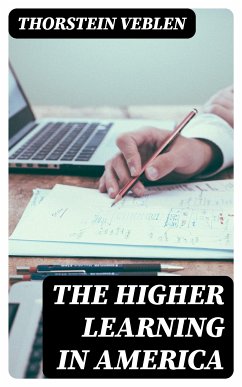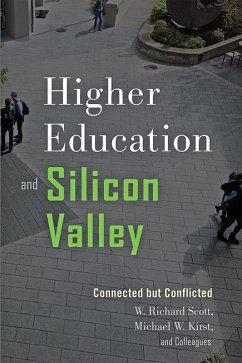
The Higher Learning in America (eBook, ePUB)
Versandkostenfrei!
Sofort per Download lieferbar
2,99 €
inkl. MwSt.
Weitere Ausgaben:

PAYBACK Punkte
1 °P sammeln!
In "The Higher Learning in America," Thorstein Veblen delivers a critical analysis of the American higher education system at the turn of the 20th century, positing that universities failing to embody true education have become self-serving institutions driven by economic motives. Veblen adopts a keen observational style, utilizing his characteristic wit and sociological insight to dissect the conflicts between educational pursuits and the forces of capitalism. This seminal work situates itself amid the broader discourse on social Darwinism and the role of education as a catalyst for societal ...
In "The Higher Learning in America," Thorstein Veblen delivers a critical analysis of the American higher education system at the turn of the 20th century, positing that universities failing to embody true education have become self-serving institutions driven by economic motives. Veblen adopts a keen observational style, utilizing his characteristic wit and sociological insight to dissect the conflicts between educational pursuits and the forces of capitalism. This seminal work situates itself amid the broader discourse on social Darwinism and the role of education as a catalyst for societal progress, ultimately challenging readers to reflect on the true purpose of learning in a commodified society. Thorstein Veblen, an influential economist and sociologist, was a prominent figure in the early 20th-century intellectual landscape. His own educational experiences, coupled with a scathing critique of American materialism as exemplified in his earlier work, "The Theory of the Leisure Class," informed his perspectives in "The Higher Learning in America". Veblen's observations are not merely academic; they are autobiographical reflections on his own disillusionment with the constraints and priorities of the education system. For readers intrigued by the interplay between education and societal values, Veblen's work remains both relevant and provocative. It challenges us to reconsider our own educational institutions and urges critical engagement with their dual roles as bastions of knowledge and vehicles of class distinction. "The Higher Learning in America" is essential reading for anyone seeking to understand the dynamics of education in contemporary society.
Dieser Download kann aus rechtlichen Gründen nur mit Rechnungsadresse in A, B, BG, CY, CZ, D, DK, EW, E, FIN, F, GR, HR, H, IRL, I, LT, L, LR, M, NL, PL, P, R, S, SLO, SK ausgeliefert werden.













